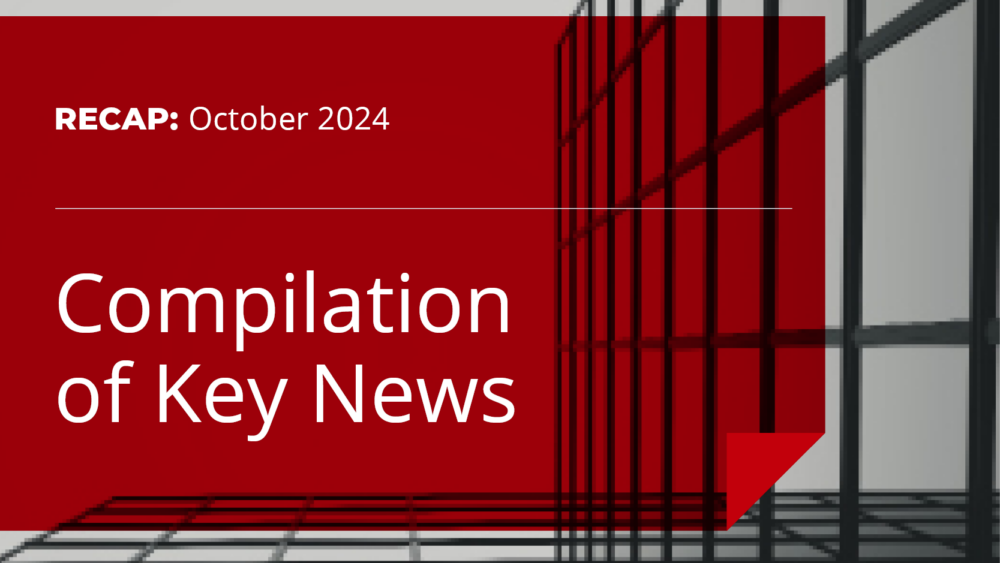From GenAI’s growing role in law to a shift in law firms’ pricing model, we present a compilation of key updates for October 2024.
AI Reshaping Legal Services: Thomson Reuters Report Highlights Growing Role of GenAI in Law
Thomson Reuters’ Tech, AI and Law 2024 report reveals the transformative impact of AI on the Australian legal sector, with 869 legal professionals surveyed. The findings show a strong shift toward AI adoption, emphasising increased efficiency, productivity, and the potential for professionals to focus on value-added client work. A notable 32% of respondents expressed interest in having a generative AI (GenAI) assistant to support routine tasks, allowing lawyers to concentrate on complex legal challenges and professional growth. Meanwhile, nearly three in five in-house professionals believe GenAI should influence law firm pricing structures, suggesting a shift toward value-based models.
The report also underscores the industry’s call for responsible AI implementation, emphasising “human-in-the-loop” oversight. Thomson Reuters prioritises ethical AI practices by integrating human review and governance protocols at every stage of GenAI development and deployment. Carter Cousineau, Vice President of Responsible AI and Data, notes that human oversight is essential to maintain accuracy, cybersecurity, and model performance, ensuring AI complements rather than replaces thorough legal work.
AI Spurs Shift in Law Firm Pricing Models
Thomson Reuters’ Tech, AI and the Law 2024 report highlights how AI is reshaping law firm pricing, with both private practice and in-house counsel advocating for new value-based models over traditional billable hours. Many (40% of private practice professionals and 52% of in-house counsel) view the billable hour as a barrier to adopting AI, as clients now expect law firms to reflect AI-driven efficiencies in pricing.
Alex Coyne from Thomson Reuters noted clients’ expectations for time and cost savings through AI, spurring law firms to adapt. Over half of in-house professionals support AI-inclusive pricing, with 95% of private practitioners affirming that while AI can’t replace detailed legal work, it greatly enhances efficiency. Additionally, nearly half (46%) of private practitioners favour disclosing AI use to clients. The report underscores that AI is set to streamline legal work, with tools like CoCounsel accelerating tasks. While AI will not replace core legal expertise, it will increasingly support it, reshaping service delivery and pricing.
AI to Enhance, Not Replace, Legal Profession Says Crown Solicitor
Crown Solicitor Cecelia Christensen reassured attendees at the Queensland Law Society’s Government Lawyers Conference that artificial intelligence (AI) is set to bolster, rather than undermine, the legal profession. Addressing government lawyers in Brisbane, she highlighted AI’s role in alleviating workflow pressures as demand for legal services continues to grow. Christensen emphasised that AI and automation could address unmet client needs more efficiently than expanding human resources, noting that legal technology enables government lawyers to manage rising workloads and improve public service delivery.
Christensen also discussed the potential of AI in drafting legal documents and analysing data, which could save time and enhance consistency. While optimistic about AI’s benefits, she acknowledged the importance of managing confidentiality, privacy, and consent. Christensen encouraged government lawyers to explore AI-driven efficiencies, while preserving their unique value as trusted advisers by adapting to public expectations and collaborating with other experts.
OAIC Issues New Privacy Guidelines for AI Use in Australian Businesses
The Office of the Australian Information Commissioner (OAIC) has released new guidelines to help Australian businesses navigate privacy laws when using artificial intelligence (AI). The first guide aids businesses in selecting AI products that meet privacy obligations, while the second provides developers with privacy guidance for using personal information to train generative AI models. Privacy Commissioner Carly Kind emphasised the importance of “good AI governance” and robust privacy safeguards to build public trust and meet compliance standards.
The guidelines align with OAIC’s mission to promote privacy in the context of emerging technologies. Commissioner Kind highlighted the growing public concern around AI’s use of personal data and stressed the need for businesses to assess privacy risks carefully. The OAIC has also called for stronger privacy reforms, including a “positive obligation” on businesses to ensure fair and reasonable handling of personal information, positioning privacy as central to responsible AI innovation.
About Law Image: Law Image is a leading document management company. Founded in 1999 and headquartered in Melbourne, we have offices in Sydney and Brisbane. Law Image supports law firms and government departments across Australia with end-to-end legal document management solutions.
For Marketing & Branding enquiries, contact:
Siddhi Chavan (communications@lawimage.com)
Marketing Specialist




Comments are closed.